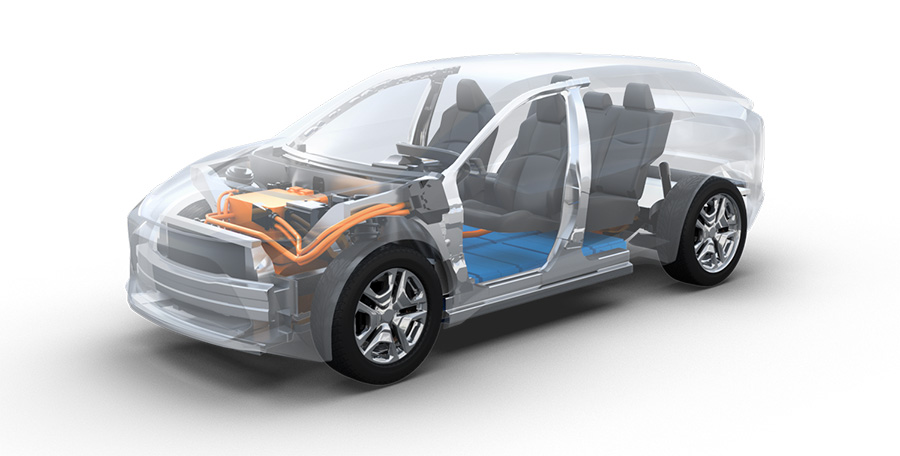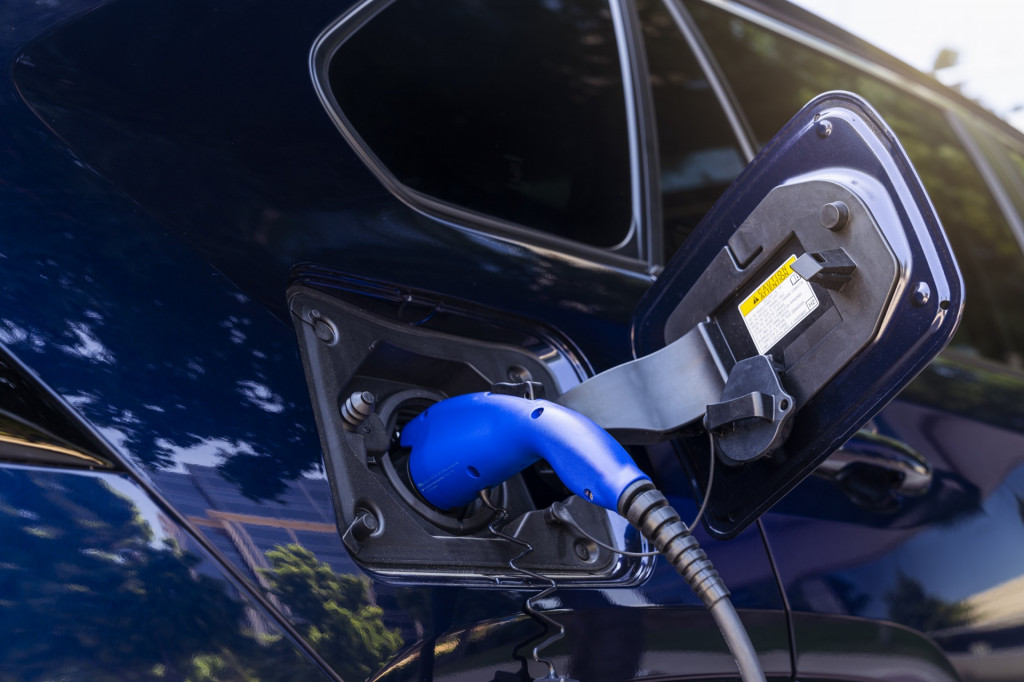Toyota’s all-electric vehicles are coming to America—in 2021, the company confirmed in an announcement Wednesday.
That includes an arrival for two battery-electric vehicles, according to Toyota North America, and an additional plug-in hybrid model. By 2025, Toyota aims to have 40% of new U.S. vehicle sales be electrified models (hybrids, plug-in hybrids, and EVs), and by 2030 it expects that to increase to nearly 70%.

Toyota U.S. electrified vehicles presentation - February 2021
Although the company didn’t yet say what those new EV and PHEV models are, one of them is almost certainly the battery electric SUV that Toyota confirmed for Europe in December. It’s expected to be part of a joint-venture with Subaru, which will also result in a Subaru electric crossover set to arrive later this year. The other EV, as hinted by a presentation slide accompanying the announcement, points to an electric sedan.

Toyota-Subaru electric vehicle platform
Toyota also confirmed that it’s developing a dedicated EV platform, called e-TNGA, that will offer a lot of flexibility for multiple drive configurations.
It revealed a series of EV designs in 2019—likely including both of the models to be introduced this year. Although up until now the automaker hasn't committed to a timeline for U.S. introduction.

Toyota future electric vehicle designs - 2019
Meanwhile, the third model set to arrive in 2021, a plug-in hybrid, will be the third PHEV in Toyota's current lineup, after the Prius Prime and RAV4 Prime. According to the automaker, its research has shown that battery-electric models and plug-in hybrid models offer similar environmental benefits.
By greenhouse gas emissions, a “currently available” BEV model and HEV are about the same, when considering electricity production for the average U.S. energy grid, Toyota claims.
That runs counter to what the Union of Concerned Scientists has calculated—that there is almost nowhere in the U.S. in which the average EV doesn’t produce fewer global-warming emissions. Electric vehicles also have the advantage of becoming cleaner each year as the grid mix transitions to more renewable energy.

2021 Toyota RAV4 Prime SE
Toyota CEO Akio Toyoda reportedly said in December that a strong push for electric vehicles could increase carbon emissions in Japan. There, too, it depends on the local power mix.
As it explained in an accompanying release: “By having a diversified product portfolio with multiple forms of vehicle electrification, Toyota can let consumers choose the model that best suits their usage needs and cost profile while maximizing the total contribution to GHG reduction.”













